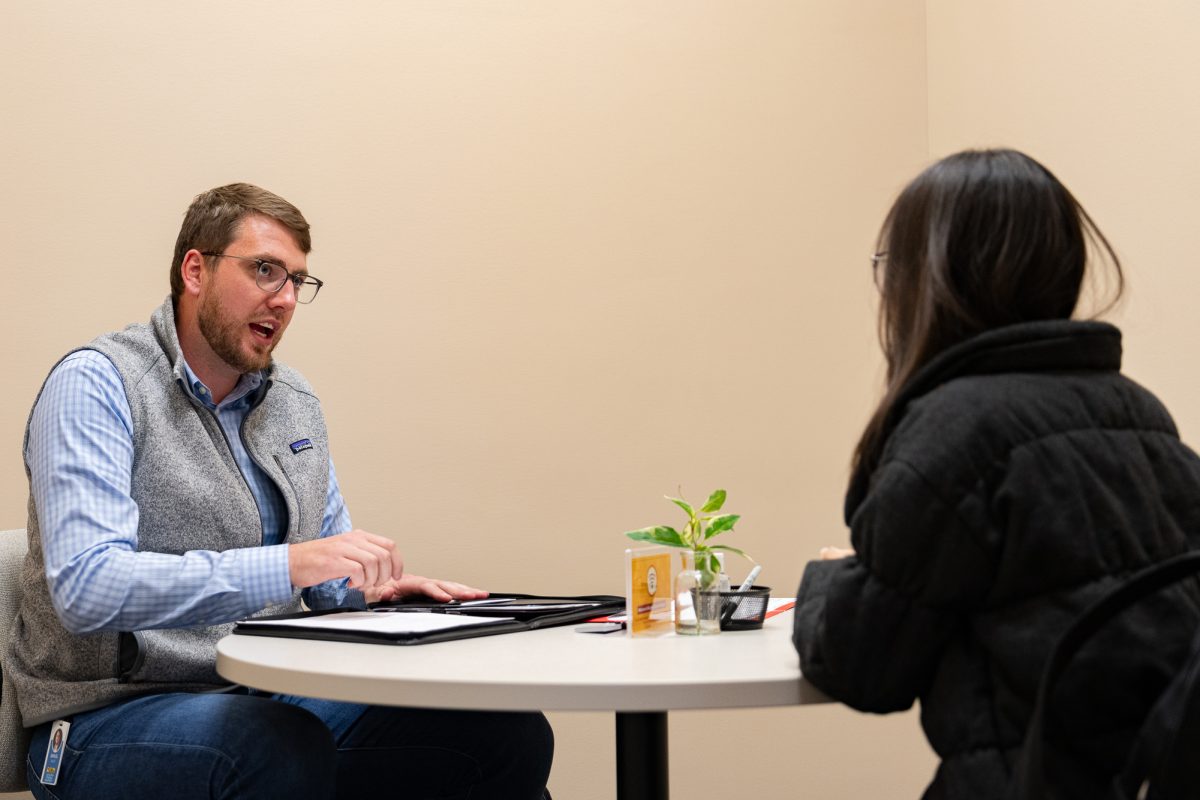More Americans go herbal
July 21, 1998
Part three of a three-part series
Anyone who gulps a cup of green tea to dull an upset stomach may be considered an herbalist.
Herbalists, or individuals who use herbal remedies to alleviate pain, are on the rise in the United States. According to the February 1998 issue of Natural Food Merchandiser, a study by Hartman & New Hope found that “of the 43,000 U.S. head of households responding to the survey, 68 percent [almost 30,000] indicated they had used vitamins, minerals or herbal supplements in the past six months.”
“Alternative medicine is used more in Europe,” said Judy Juhler, a resident of Harlan and a seven-year user of aromatherapy, or olfactory herbal medicine.
“[But] it’s starting to get recognized in the U.S.,” Juhler said.
“[Herbal medicine] is a more pleasant way to treat things. It’s a non-evasive treatment,” she said.
Two of the most recognizable and popular herbs used in herbal therapy are chamomile and ginseng. Chamomile is most helpful for the nervous system.
Ginseng is perhaps the most recognizable herb. It is most helpful in the glandular system, though traditionally it has been used for energy, longevity, age spots and as a nerve tonic.
Several stores in Ames sell herbs and other natural remedies, including Ameriherb Inc., 803 E. Lincoln Way. Molly Borud, office manager for Ameriherb Inc., said the store features “over 500 different herbs and spices.”
Everything in the store is natural, Borud said. She added that most of the store’s business comes from mail orders rather than from walk-in customers.
Borud said St. John’s Wort has become a favorite among herbalists. She said herbs that receive media attention seem to gain popularity.
But all the recent advertising of over-the-counter herbal remedies may be misleading, said Jean Gordon, an Elkhorn pharmacist who has studied herbal medicines for two years.
“People need more of a lifestyle change than just taking the herb. The herb is not going to change your lifestyle,” Gordon said. “Consumers should be cautious about what they’re purchasing,” she said.
Borud said herbs are a helpful supplement. She added that the therapy shouldn’t substitute for a doctor’s care.
According to an article by Ian M. Smith, professor of internal medicine at the University of Iowa, people should “be prudent — be a discerning customer.”
Gordon said people who are interested in complimentary medicine should “get a book and find what area they want to use the herbs on.” She added that self-education is the key to herbal remedies.
Gayle Jensen, who has used herbal remedies for six months, agreed that staying informed about herbs is sensible.
“Reading about [an herb] is the best way to give you the options,” she said.
Since the resurgence of herbal medicine in the media, a discourse has risen between medical professionals and complimentary medicine proponents.
According to Smith’s article, “The one pervasive characteristic of ‘alternative’ medicine is that it is unproven.”
“[A potential user] should use [herbal remedies] cautiously, one thing at a time,” Juhler said. “Read up on what you’re going to take,” she said.
Gordon said herbal remedies are appropriate for the medical field, but that they would be more suitable if they were better controlled. She added that any potential user should find out if the herb they want to take conflicts with any prescription medication they are using.
“[Herbal remedies] are just like any over-the-counter drug, and they can be abused just like any other drug,” Jensen said.






